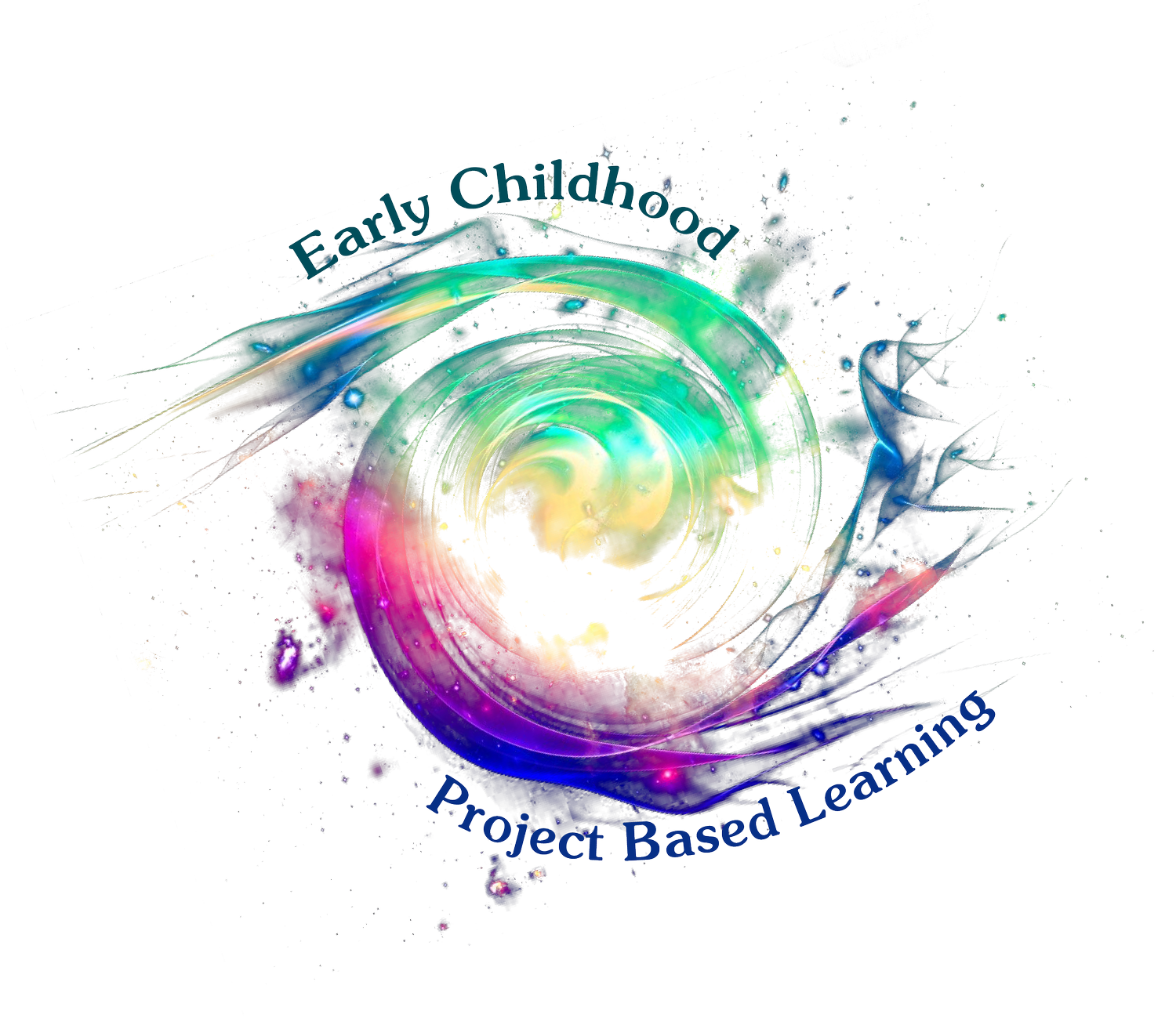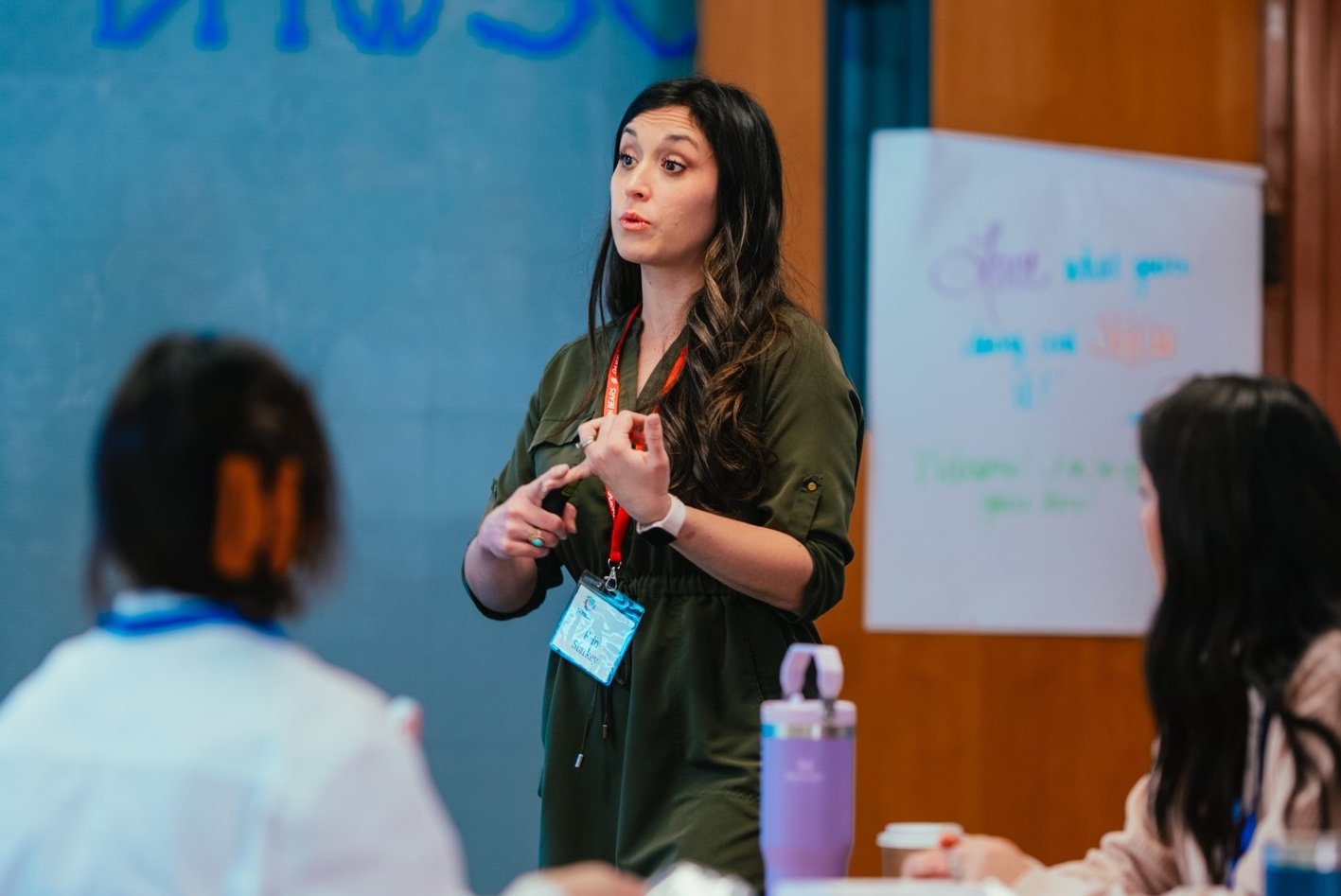Breakout Sessions
Breakout sessions are an opportunity to delve deeply into a key component of Early Childhood Project Based Learning. Each session will include rich discussions, practical insights, innovative strategies, and opportunities to reflect on and connect with your own practice. Throughout the conference, you'll have the flexibility to choose from a variety of breakout sessions, each offered twice to fit diverse interests and schedules.
Introduction to Project Planning in Early Childhood
with Sara Lev
Session Description
In this session, we’ll explore what Project Based Learning (PBL) is—and isn’t—by comparing it to other common early childhood instructional approaches. Learn our unique planning process that leverages student interests, integrates key content, and fosters Social and Emotional Learning, all through our ECPBL planning outline. We'll share strategies for connecting your curriculum, sustaining student inquiry, and designing projects tailored to your learners. You'll leave with practical tools to bring meaningful, engaging projects to your classroom.
Attend this workshop to:
Understand the similarities and differences between common early childhood instructional approaches and Project Based Learning (PBL).
Explore strategies to integrate existing curricula and schedules into an EC PBL framework, ensuring alignment with current practices.
Develop techniques for sustaining inquiry throughout a project by redefining the concept of "research" and identifying opportunities for curriculum integration.
Gain the skills to envision and design projects tailored to the unique needs and interests of your community of learners.
Purposeful Literacy Instruction: Leveraging Early Literacy Structures Within the Context of a Project
with Amanda Clark
Session Description
In this session, we will dispel the common misconception that young children must be fluent readers and writers to fully participate in Project Based Learning. We will broaden our definition of literacy, to include meaning making and inquiry alongside reading, writing, speaking, listening, and language development. As a community of learners, we will identify purposeful literacy structures that are crucial for emergent and early literacy instruction as we build a holistic view of literacy that can be developed through Project Based Learning. We will use collaboration and critical thinking to identify opportunities for utilizing purposeful literacy structures, stand alone lessons, and skill development activities in early childhood project plans.
Attend this workshop to:
Embrace a more holistic definition of literacy, integrating meaning-making with reading, writing, speaking, listening, inquiry, and language development in the context of PBL.
Collaboratively identify purposeful literacy structures crucial for emergent and early literacy, emphasizing acquisition, meaning, and transfer.
Learn how to intentionally plan meaningful, comprehensive literacy-rich learning experiences within a PBL unit.
Engage with fellow educators to share best practices for early childhood PBL.
Reflection, Feedback, and Revision: Taking an Active Role in the Learning Process
with Erin Starkey
Session Description
Join us as we explore a variety of strategies that can help young learners take an active role throughout a PBL unit through reflection, feedback, and revision. We will explore how to intentionally embed reflection practices throughout a unit in ways that support young children’s growing self-awareness and metacognition. We will also learn about and engage in critique protocols that can be utilized with young children in order to help them learn what it looks like, sounds like and feels like to give and receive feedback, and make revisions to their work. Together we will dispel the common misconception that children are too young to engage in these key elements of PBL, and are, in fact, capable and independent learners who can confidently participate in the learning process.
Attend this workshop to:
Deepen our understanding of why reflection, feedback and revision are essential to students’ learning process and engagement during PBL.
Learn how to scaffold and develop students’ reflection, feedback and revision skills as you plan for a PBL unit, as well as outside of a PBL project.
Learn key features of effective feedback in early childhood PBL.
Engage with fellow educators to share best practices for early childhood PBL.
Playful Learning by Design: Guided Play as a Foundation for Project Based Learning
with Dr. Allison Wilson and Kristin Dahl Horejsi
Session Description
In this interactive workshop, we will explore the authentic connection between guided play and Project Based Learning. The session will highlight the core 21st-century skills children develop through play, such as collaboration, critical thinking, and creativity. Participants will identify effective strategies to promote these skills through guided play experiences and have the opportunity to apply this knowledge to a current project or one provided.
Attend this workshop to:
Discuss the continuum of play and describe how the varying play stages support children’s developmental and learning needs.
Identify the core 21st-century skills children develop through play and strategies for promoting these skills through guided play paired with Project Based Learning.
Articulate the relationship between guided play and project-based learning, recognizing how they complement and enhance each other in fostering engagement and learning.
Acquire and apply practical strategies and techniques for facilitating guided play within project-based learning contexts to promote core 21st-century skill development.
Dr. Allison Wilson, an Associate Professor and the Director of the University of Montana Institute for Early Childhood Education, earned her PhD in Special Education and Early Intervention from the University of Oregon. With over two decades of experience, Dr. Wilson has dedicated her career to supporting young children and their families. Her teaching encompasses a range of topics, including family engagement, curriculum design, early assessment practices, and child guidance. Dr. Wilson's research, which employs an Improvement Science framework, focuses on enhancing early childhood professionals' preparation, implementing community-level initiatives to promote equitable opportunities for young children, and developing strategies to foster positive, language-rich interactions between young children and their caregivers.
Kristin Dahl Horejsi is the Learning and Belonging (LAB) School Director at the University of Montana. She is a UM alum with a degree in Psychology and holds a Master’s in Early Intervention/Early Childhood Special Education from the University of Oregon. Kristin has worked with young children and their families for over 30 years. She started her career as a Child Development Specialist providing home-based developmental therapy for infants and toddlers with special needs in Montana and Idaho. She shifted to teaching preschool and Early Childhood Education coursework in the LAB in 2007 and has been the LAB School Director since 2015.
Developmentally Appropriate Assessment Practices for Early Childhood PBL
with Amanda Clark
Session Description
In this session, we will explore assessment as learning alongside assessment of and assessment for learning in an early childhood context. We will examine the four functions of assessment and create a crosswalk with the key PBL assessment areas—content, processes, products, and dispositions, building you a toolbox of developmentally appropriate assessment strategies. We will discuss how to use assessment information to guide instruction and identify opportunities to intentionally include formative assessments in your projects.
Attend this session to:
Gain a comprehensive understanding of the concept of "assessment as learning," distinguishing it from assessments of and for learning, promoting its role in developing student self-regulation and reflection in early childhood settings.
Create a toolbox of developmentally appropriate strategies for assessing project content, learning processes, products, and dispositions in project-based learning.
Discuss how to use assessment information to guide instruction and enhance student learning outcomes with young children.
Coaching Corner: Bring Your Project to Life with Personalized ECPBL Coaching
with Erin Starkey
Session Description
In this session, we will engage in a high-impact protocol to strengthen a project planning outline through feedback. As a community of educators, we will support each other in project revisions so that participants leave with project planning outlines that are ready for implementation with students.
Attend this session to:
Utilize expert coaching to refine your ECPBL project planning outline.
Develop your ability to give and receive constructive feedback.
Foster a supportive network for ongoing coaching and future collaboration.
Receive just in time support for a project and leave the session with a project planning outline that is ready to move from planning to implementation.
Embedding SEL and
Anti-Bias Education Goals into Projects
with Sara Lev
Session Description
In this session, we will delve into the four core goals of anti-bias education—identity, diversity, justice, and action—along with essential social and emotional learning (SEL) competencies that promote collaboration, independence, and emotional well-being in young children.
Through the examination of thoughtfully designed early childhood projects, you will see how these learning goals can be effectively integrated into meaningful, learner-centered experiences. The session will emphasize practical strategies for embedding anti-bias and SEL objectives into both ongoing projects and future planning.
This session is designed to be inclusive and relevant for all educators, offering actionable insights to create supportive learning environments that celebrate the uniqueness of every child.
Attend this workshop to:
Develop an understanding of the four goals of anti-bias education and their significance in early childhood settings.
Identify and understand key social-emotional learning (SEL) competencies that promote collaboration, independence, and emotional well-being in young children.
Explore the connection between project-based learning (PBL) and SEL, recognizing how PBL naturally integrates SEL competencies through real-world problems and meaningful contexts.
Gain strategies for embedding anti-bias and SEL principles into PBL units through relevant, learner-centered experiences, and refine an existing project by focusing on specific areas to incorporate these goals more intentionally.








